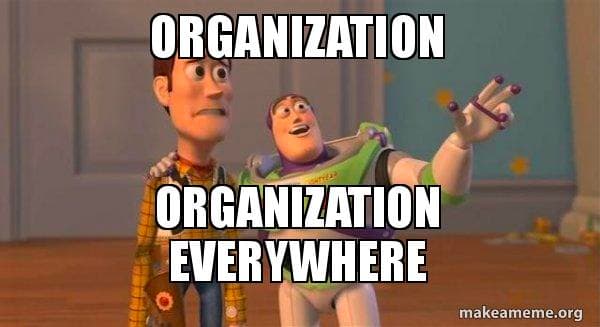This content originally appeared on DEV Community and was authored by Maciej Płatek
The recruitment processes can be weary and after answering countless questions you only think about leaving the interview, but you should never lose an opportunity to ask your interlocutors some questions. Why? There are a couple of reasons. First of all, there are a lot of things you should know before you accept the job offer. Another reason is more practical, when you are asking questions you look less intimidated and more experienced and so why not score some more points?
It’s important, however, to keep in mind that you shouldn't ask technical questions to HR people and vice versa, which can lead to uncomfortable situations. If you want to address any technical doubts you can ask if you may rise them on the next step of the recruitment process or maybe the recruiter can get you in touch with someone who can answer them.
I don’t want to crush you with an overwhelming list of all possible questions, because it may bring only more confusion. I present to you which topics you should stick to during the conversation to finish it with the most possible amount of information that should be handy.
1. Work organization
If you think about work organization, probably the first thing that comes to your mind is how your typical work day will look like. And that's the correct approach because that defines how your life will be going. Ask about hours, is it typical nine to five? Are there any office hours? Or maybe the company is totally flexible and you only should stick to the meetings? After you get the answer you will be sure if such day's composition suits you. So we already covered the meeting topic and to be frank - meetings can be harsh. Ask how many meetings you are scheduled to attend in a week. Some people prefer fewer meetings and if you are not sure what your preferences are - trust me, you prefer fewer ;)
Usually, based on the job offer, you already know if it is a remote, stationary or hybrid position, but even so, you should ask about that. Sometimes companies interpret remote jobs as “2 times a week in an office” or hybrid as “1 time a month from any location”. So better be sure than sorry. If you are expected frequently in an office, ask for free parking, because that can be a really big struggle in cities.
At this point you should know where and how you will work, so your next concern is equipment. Will the company provide you with a brand-new Macbook Pro? Can you expect to expand your home office to 8 monitors? Are peripherals even an option? Or will you need to use your old PC with a keyboard that is a house for a family of spiders?
2. Responsibilities and technicalities
Technical people should have technical responsibilities, that is obvious. Or at least it should be…but it’s not always the case. That’s why you should always ask about your responsibilities - what you need to do from starting working on a task till you mark it as “Done”. Will you be responsible for one project? Maybe besides the project, you are expected to handle something extra? Be inquisitive about it, and stick to this topic until your curiosity is satisfied.
After you finish the cross-examination about responsibilities, ask more specific questions. What does the technology stack look like? Which version of the framework is currently used? Unless you like working with legacy code, that is a good sign if a company uses one of the latest versions.
Another good idea is to ask about some advanced subjects. Is there Continuous Integration/Continuous Delivery used? How big is the test coverage? Are you working in Test Driven Development? Such questions will get you some bonus points.
3. Team organization
After you get knowledge about your responsibilities, now is the time to ask about people who will be sharing them with you. Will you be working in a team? How big is the team? Do teams cooperate on the same product? What roles do people have in your team? It is really important to know that. Workflow varies significantly between a team of 5 programmers and a team of 3 programmers, QA and Product Manager.
The next step will be to ask about the methodology the team is working on. Is it Agile? Maybe Scrum? Waterfall? Or some in-house implementation of principles? Trust me it is more important than you can think. If the recruiter is avoiding the answer then you can assume that something is wrong with the team organization (or it's not for just one particular project!).
4. Your future
Your future should always be your concern, even if you are treating the company as a temporary stop. Courses, conferences, training, and certifications are the things that can positively affect your future and have a really good impact on your career. For junior developers such opportunities can be even more valuable than financial benefits. Ask if there is any budget for such activities.
On the other hand, consider asking about your career in the company. How often can you expect an evaluation meeting where you can ask about a pay raise? Can you get a promotion to higher positions? Don’t be afraid to ask that, it will not be considered rude, but rather appreciated that you are looking forward to developing and planning to build a career path.
5. Benefits and events
The last position on our list is focused on benefits and events. Benefits consider all kinds of bonuses you can expect from a company. For example, it can be private insurance, private healthcare, a lunch card or some kind of sports card. It varies between companies, some of them are giving you a lot of benefits, while others prefer giving you more on your paycheck.
Other things considered bonuses are company events. Such an event can be a typical activity that is helping build bonds with a team, so parties in restaurants, go-karts, bowling etc. Even if you are a hardcore introvert and you have no interest in them you should know what to expect. But social events are not the only activity you can expect a company to host. Ask about a hackathon or some kind of internal knowledge-sharing meeting.
Summary
Repeating “don’t be afraid to ask” can be a good summary of my pieces of advice list ;).
Treat recruitment meetings as a source of information, both for the recruiter and you. Before accepting a position be sure that there are no unknowns. This is especially important if you are in more than one recruitment process because you shouldn’t decide on an offer only salary-wise. Asking important questions should get you a brief understanding of how a company is doing and if it is the right place for you.
Good luck with your next job interview, I’m sure that you will make a good impression!
This content originally appeared on DEV Community and was authored by Maciej Płatek
Maciej Płatek | Sciencx (2023-04-20T09:46:53+00:00) 5 topics you should touch on during the recruitment process. Retrieved from https://www.scien.cx/2023/04/20/5-topics-you-should-touch-on-during-the-recruitment-process/
Please log in to upload a file.
There are no updates yet.
Click the Upload button above to add an update.



